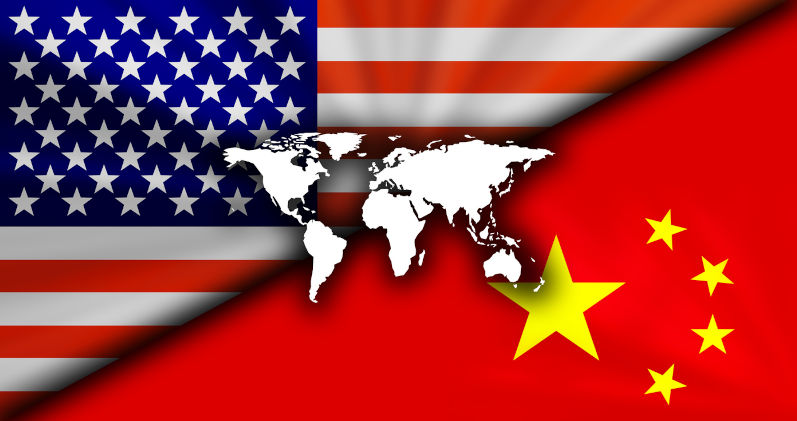One person’s think tank is another’s propaganda organ
November 11, 2024
Unlike China’s state-run think tanks and media groups, their Anglo-American counterparts have industry ties and interests whose influences are often far less obvious.
You read it in the news all the time. What is denounced or dismissed as propaganda by one government may be considered a matter of fact or even the truth by another.
In this context, I don’t doubt that China wages propaganda campaigns or what is sometimes called cognitive warfare against the United States. But I don’t think it’s remotely as successful as the US and its English-speaking allies are in their own information warfare against China.
That has been the case in terms of the length of time dating back decades and also the wide spectrum of domains targeted – from mass and social media to academia, think tanks and the entertainment industry. Whether it’s covert or overt information campaigns by the US government, they have been far more insidious and widespread.
These observations, I think, are accepted, or even considered obvious, by many people outside the West, but will be readily dismissed by many others inside the West, especially those within the Anglo-American sphere.
But let’s consider a few recent examples. A bill is working its way through the US Congress to spend US$1.6 billion over five years to promote anti-China propaganda.
The “Countering the PRC Malign Influence Fund Authorisation Act of 2023” was passed in the House of Representatives in September and will likely also gain passage in the Senate. It will earmark US$325 million each year until 2027 to support media and civil society sources to counter China’s “malign influence” around the world.
It will target what the US government considers acts by the Communist Party of China or the Chinese government or entities acting on their behalf that “undermine a free and open international order”, “advance an alternative, repressive international order”, or that undermine the national and economic security or sovereignty of the US and other countries.
No doubt American legislators don’t consider their handy work propaganda against Chinese interests. Maybe they are just trying to spread gospel truths. More neutral people may just consider it US propaganda vs Chinese propaganda. But the two operate very differently.
English-language news media routinely interview prominent think tank scholars who may moonlight as industry lobbyists or whose institutions receive funding from the private sector, especially in defence.
The Washington-based Centre for Strategic and International Studies (CSIS) is as influential as think tanks come, and its officials and affiliated scholars are frequently interviewed by leading news outlets, never mind that it has close ties with the defence industry, including funding.
Lee Fang, an independent US journalist, pointed to a New York Times interview published in September in which a senior CSIS official spoke in favour of allowing Ukraine to use Western weapons to strike deep inside Russia.
What the Times failed to disclose is that the official was also a senior adviser to a leading US national security advisory firm. Was he being objective and independent as a scholar or did he have an undisclosed conflict of interest? It’s murky and hard to say, of course. These kinds of situations happen all the time.
But suppose a Chinese national security PhD works both for a mainland think tank and a defence contractor, and she tells national broadcaster CCTV that Beijing needs to aim more missiles at the island of Taiwan to maintain a deterrent against secession. Would you think she is being objective and independent?
The Canadian Global Affairs Institute is the go-to think tank for many news outlets. It’s advertised as “a leader in non-partisan, unbiased and independent analysis of Canadian public policy”.
That may be so, but it has received funding from the Canadian subsidiaries of some of the largest weapons manufacturers in the world such as General Dynamics (Land Systems and Mission Systems) Canada and Lockheed Martin Canada.
Other financial supporters include Irving Shipbuilding, which has constructed more than 80 per cent of the Canadian navy at sea today, Boeing, BAE Systems and the Swedish defence company Saab AB. The Canadian Department of National Defence is also a supporter.
Could that have something to do with the institute’s often hardline policy positions, such as criticism that Ottawa is not spending enough on defence as a Nato member?
Again, who knows?
Then there is the hawkish Australian Strategic Policy Institute, which has hyped “the China threat” more than any other group Down Under other than those news entities within the Rupert Murdoch media empire.
It is, you guessed it, funded and supported by the Australian Department of Defence, and Lockheed Martin, BAE Systems, Northrop Grumman, Thales Group and RTX Corporation, formerly Raytheon Technologies.
When it comes to Chinese state-run think tanks and news media, you know where they are coming from. But with their Anglo-American counterparts, they claim to be independent and free from outside influence. Are they? If not, that makes them even more insidious.
Republished from South China Morning Post, October 31, 2024


